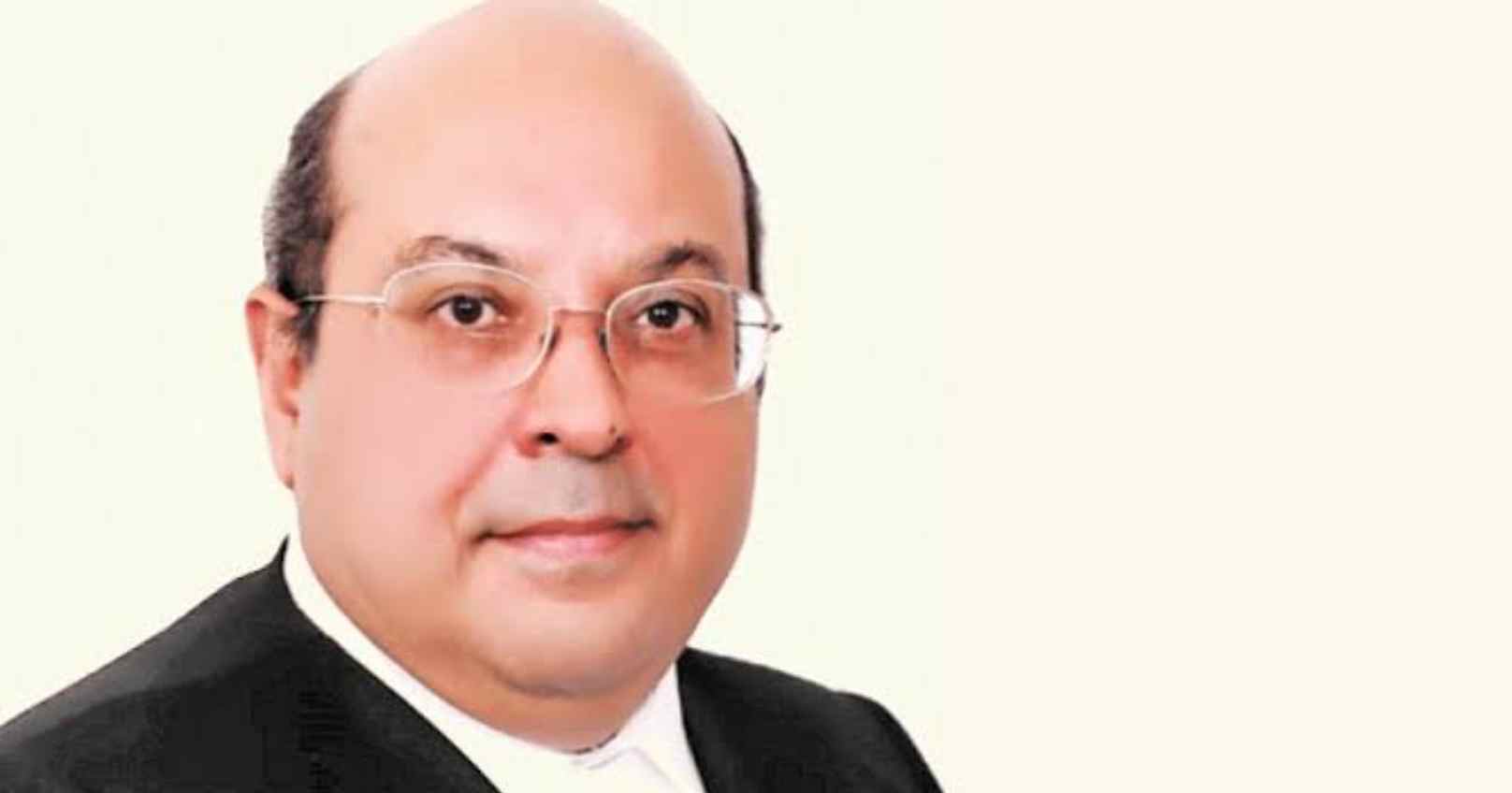“Be honest at all times. Never try to hide a fact against yourself”, said Mr. Rohinton F. Nariman in an interview by the Bombay Bar Association. Such righteous principles can only emanate from a strong legacy which has given the Indian judicial system a judge of Rohinton Nariman’s calibre.
At the young age of thirty-seven he was appointed as a senior advocate and became the fifth advocate ever to be directly appointed as judge of the Hon’ble Supreme Court in 2014.
A graduation from the University of Delhi and Masters at Harvard Law School gave Mr. Rohinton F. Nariman the much needed platform to appreciate the jurisprudence of different legal systems. His legal acumen is reflected in his judgments which have left an indelible mark on the Indian jurisprudence. The judgments not only contain the pertinent laws but also encompasses the elements of literature, history and foreign jurisprudence. His learning never stopped as a lawyer and a judge but as a scholar in theology too, he is an ordained priest and has authored the book, “The Inner Fire: Faith, Choice, and Modern- Day Living in Zoroastrianism”. Truly he wears many hats.
In the ever-evolving landscape of Indian jurisprudence, Justice Rohinton Fali Nariman's career trajectory stands out as a study in professional versatility. A well-regarded senior advocate known for his incisive legal reasoning, Nariman had long been a familiar face in the Supreme Court, often found articulating complex arguments with a characteristic blend of clarity and depth.
In 2014, however, Nariman opted for a change of scenery, swapping the advocate's rostrum for the judge's bench. This move, from the bar to the bench, while not unheard of in legal circles, raised a few eyebrows given its timing. Here was a lawyer at the peak of his powers, choosing to set aside a thriving practice for the more measured role of a jurist.
Ever since his appointment as a judge, Hon’ble J. Rohinton Fali Nariman has been part of various landmark judgments that have led to the evolution of laws in India. He understood that digitalization is the new era and that regulating it is the need of the hour. Through various landmark judgments, he has played a major role in evolution of digital laws while protecting and safeguarding the interest of the public and corporate entities. In Shreya Singhal v. Union of India Writ Petition (Criminal) No. 167 of 2012, section 66A of the Information and Technology Act, 2000 was struck down and the supremacy of freedom of speech and expression as provided under Article 19 of the Constitution of India was reiterated.
The judgment dealt with the expansive and vague language of Section 66A of the Information Technology Act, which criminalized "grossly offensive" or "annoying" online communications. This overreach posed a significant threat to free expression, especially when opinions or views—whether they pertained to governance, literature, or societal issues—could be deemed offensive by certain sections of society.
Under the head ‘Chilling Effect and Overbreadth’, Justice Nariman explains - “Information that may be grossly offensive or which causes annoyance or inconvenience are undefined terms which take into the net a very large amount of protected and innocent speech. It is obvious that an expression of a view on any matter may cause annoyance, inconvenience, or may be grossly offensive to some.” The provision’s expansive nature meant that it could apply to any opinion on any topic. If such sweeping provision was to be granted constitutional validity it could have a profound “chilling effect” on freedom of speech.
Another significant judgment was passed by the Hon’ble J. Rohinton Fali Nariman, Justice K.S. Puttaswamy & Ors. Versus Union of India & Ors. [Writ Petition (Civil) No. 494 of 2012] wherein the Right to Privacy was upheld as an inherent human right.
To quote Justice Nariman - “We have been referred to the Preamble of the Constitution, which can be said to reflect core constitutional values. The core value of the nation being democratic, for example, would be hollow unless persons in a democracy are able to develop fully in order to make informed choices for themselves which affect their daily lives and their choice of how they are to be governed.”
Before his retirement in 2021, Hon’ble J. Rohinton Fali Nariman along with J. Aniruddha Bose and J. V. Ramasubramanian passed a landmark judgment in the case of Internet and Mobile Association of India versus Reserve Bank of India [Writ Petition (Civil) No. 528 of 2018], that impacted the fintech industry of India by offering a sigh of relief especially to Virtual Currency exchanges. In the present case the court has lifted the ban on virtual tenders which was imposed by a RBI circular.
By way of background and for context with respect to the present case it is pertinent to understand the reason behind the issuance of the circular by RBI. A major shift towards digital payment was witnessed in India due to demonetization, which led to an unexpected increase in interest in virtual currencies. This trend attracted a wave of tech- savvy consumers eager to explore the potential of virtual assets. Despite the growing risk, Indian banks continued to permit transactions on cryptocurrency exchanges, which raised concerns among regulatory authorities.
Alarmed by these developments, the RBI issued a circular in 2017, expressing its apprehensions about the implications of virtual currencies. By the end of that year, both the RBI and the Finance Ministry took a decisive step by issuing a warning that clearly stated virtual currencies are not recognized as legal tender in India.
The regulatory scenario shifted further in March 2018 when the Central Board of Direct Taxes submitted a draft scheme aimed at banning virtual currencies. Just a month later, the RBI took a stringent measure by releasing a circular “Statement on Developmental and Regulatory Policies on April 5, 2018” that directed financial institutions to sever all connections with individuals and businesses involved in virtual currencies, such as Bitcoin, within a three-month timeframe. This mandate reflected the regulatory authority's intention to distance the traditional financial system from the growing cryptocurrency market.
The ban imposed by the RBI proved to be a significant setback for the cryptocurrency market, prompting several crypto exchanges to file a writ petition before the Hon’ble Supreme Court. This legal action highlighted the industry's pushback against the stringent regulations and the desire for clarity and relief from the restrictions affecting their operations.
The circular was challenged by the Internet and Mobile Association of India and other stakeholders, primarily arguing that the RBI lacked the power to regulate virtual currencies and that the measure was disproportionate. The court has observed a global consensus among regulators and governments regarding the status of virtual currencies. Although these currencies have not achieved the designation of legal tender, the court noted that they serve as valid digital representations of value and are capable of functioning as medium of exchange, unit of account and/or store of value.
The Hon’ble Bench presided by Justice Rohinton F. Nariman analysed the Petitioner’s argument that the right to access the banking system is essential for the ability to engage in trade or profession. Consequently, any legislation—whether subordinate or otherwise—that affects or diminishes the right to conduct a trade or business not explicitly prohibited by law could be seen as a violation of Article 19(1)(g) of the Constitution of India. The Hon’ble Bench emphasized that the actions taken by the RBI must adhere to the principle of proportionality:
“While we have recognized elsewhere in this order, the power of RBI to take a pre-emptive action, we are testing in this part of the order the proportionality of such measure, for the determination of which RBI needs to show at least some semblance of any damage suffered by its regulated entities. But there is none.”
The three judge Bench led by Justice Nariman observed that the RBI’s action are disproportionate as there is a clear lack of empirical data or analysis that virtual currencies had posed a real threat to the banking system in India at the time. In light of the principle of proportionality, the Hon’ble Bench set aside the RBI circular and lifted the ban.
This ruling has brought considerable relief among virtual currency exchanges. However, considering that cryptocurrencies presently exist in a state of significant regulatory ambiguity on a global scale, RBI continues to warn public regarding the risk associated with cryptocurrency and the urgent need for regulation.
With digitalization on the rise and the laws at its nascent stage of formation it is heartening to see a senior judge like Mr. Rohinton F. Nariman take the lead in laying the foundation of digital jurisprudence in the country. A brilliant and fearless judge who has left an unparalleled legacy of over 500 reported Supreme Court judgements, worked with an unshakeable faith in the highest judiciary with the merit of the cases being his only best friend. What mattered to him the most is very well reflected in his speech at the Supreme Court Bar Association (SCBA) Farewell Function on his retirement, “I believe that there is a legitimate expectation in the people of India and the litigating public to get a certain quality of justice from this final court. For that it is very clear, merit must predominate, subject of course to other factors. But merit always comes first.” emphasized Justice Nariman.
Author Details:
- Sudhir Mishra, Managing Partner, Trust Legal Advocates & Consultants.
- Swasti Misra, Senior Associate, Trust Legal Advocates & Consultants.
(With inputs from Kashish Rehan, Associate, Trust Legal Advocates & Consultants).








